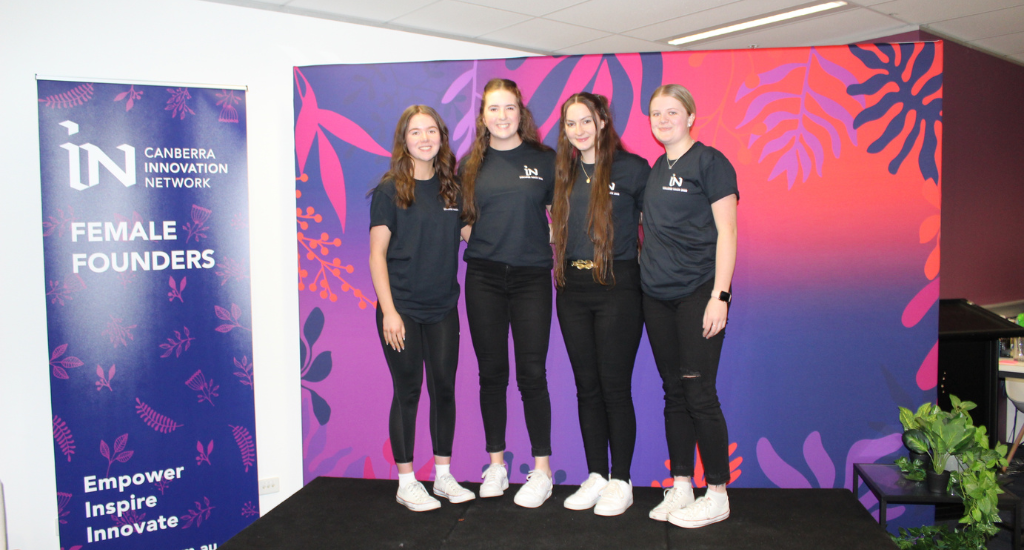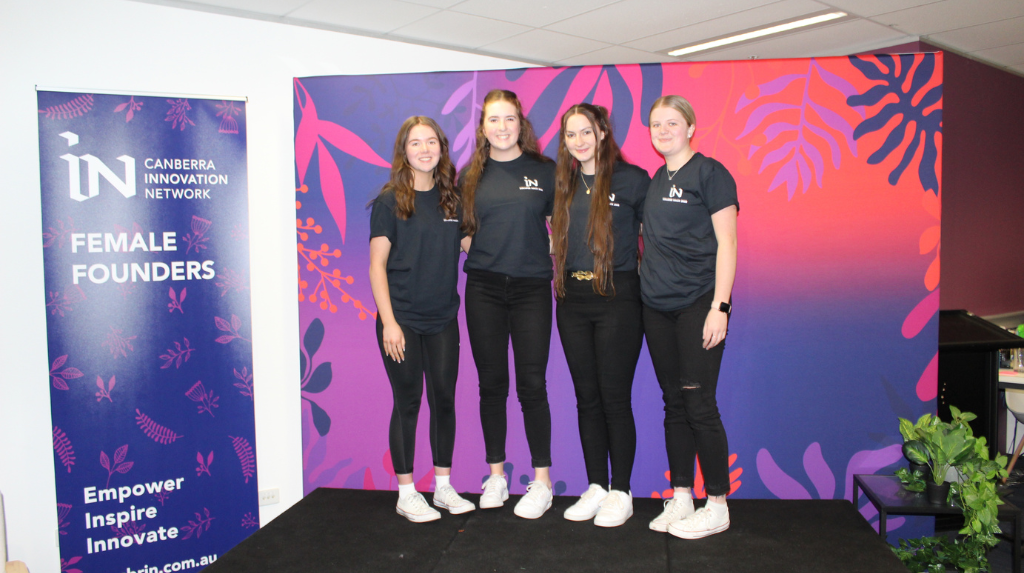- 9 November 2022
- Posted by: Ben Garrett
- Categories: Feature, General News

These days, Canberra’s teenagers are no strangers to tragedy.
After a spate of deaths on the Territory’s roads, you’d be hard-pressed to find a school community that hasn’t been impacted by the loss of a friend, classmate or team member on the sportsfields.
And even for resilient young people, those deaths leave a mark.
So much so that when asked what the pressing challenges are for the Territory – road safety and tackling the road toll (which is now the highest it’s been in over a decade) feature highly.
Erindale College students Nikkia, Jordyn, Chelsea and Jaime-Lee took out last week’s Canberra Innovation Network (CBRIN’s) College Hack event with a unique start-up idea they hoped would address that exact problem.
The two-day event brought together student teams from multiple public schools around the Territory.
Their task was simple – to devise an innovative solution to make Canberra a better place to live, develop it and then pitch it to a panel of judges (who were much friendlier than Shark Tank).
The Erindale College students’ winning solution was a change in licence testing. They envisaged converting the current Hazard Perception test from an online quiz to a virtual reality simulator.
In the simulator, drivers would come up against hazards like wildlife, pedestrians, other drivers and weather conditions.
The team hoped this would provide provisional drivers on the roads with more “real-life experience”.
“This has left us all feeling impacted because we are all provisional drivers.”
During the hack, the group polled drivers and found 60.2 per cent of people didn’t feel safe on the Territory’s roads, one of the reasons being inexperienced drivers.
“Driving is a privilege, not a right,” Chelsea said, while Jordyn said they wanted to break the stereotype to show they “actually cared” about keeping Canberra’s roads safe.
“We recognise that once you’re a P-plater, a lot of other cars speed past you. They think we are new and won’t be very good,” she said.
“We’re very passionate … we’ve lost people and it’s a cause dear to our hearts.”
Photo: Lottie Twyford
Lake Tuggeranong teacher Olivia Cable said she’d also witnessed an increase in the number of students who were stressed out or concerned about road safety after seeing so many deaths.
Ms Cable said the hack was a great way of getting students out of the classroom to have conversations about important issues with people who aren’t their teachers.
Lake Tuggeranong teacher Olivia Cable said she’d also witnessed an increase in the number of students who were stressed out or concerned about road safety after seeing so many deaths.
“It’s broadening their horizons, it’s networking and providing them the opportunity to connect with people and follow up themselves,” she explained.
“Working together and connecting as a team was also a big part of it.”
Other school teams sought to address issues relating to housing, sustainability and food poverty – the latter of which Lake Tuggeranong students suggested could be addressed, at least in part, with free school lunches.
Article originally posted by RiotAct and written by Lottie Twyford.

